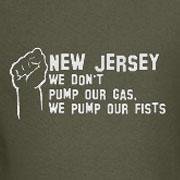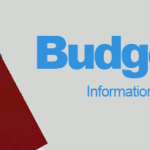New Jersey Future Blog
Support for Gas Tax from a Surprising Source
March 10th, 2010 by Jay Corbalis
NJ Biz, the weekly business newspaper, regularly polls its readers about key issues facing the state and the business community. The poll asked how readers felt about the
possibility that the state might raise the gasoline tax, and gave them four options: 1) It would be “political suicide”; 2) It would be “important to maintaining roadways and bridges”; 3) It would be “unpopular but necessary to balance the budget”; or 4) It would be “a way to keep costs in line with NJ Transit.”
It is perhaps unsurprising that “political suicide” led the list of responses. What is surprising, though, is that this was a distinctly minority opinion. Only 35 percent of the 628 responses said they thought hiking the gas tax amounted to a death wish for the state’s politicians. Nearly two out of three respondents actually favored raising the tax — 29 percent saying it was “important to maintaining roadways and bridges”; 25.3 percent believing it was “necessary to balance the budget”; and 10.4 percent calling it “a way to keep costs in line with NJ Transit.” (Coincidentally, according to the most recent data available, the percent of New Jersey residents who commute to work via transit is 10.7 percent).
The respondents to the NJ Biz poll are, of course, a self-selecting sample, and may not be representative of New Jerseyans as a whole. But that doesn’t mean the poll results aren’t instructive. The NJ Biz readership isn’t exactly what you’d call a bunch of tax-and-spend liberals; in the paper’s previous poll, respondents expressed overwhelming support for Governor Christie’s budget-cutting ways — or, as the headline put it, “Readers sing praises for Christie and his hatchet.” That they also favor raising the gas tax is noteworthy, but perhaps not surprising given the role transportation plays in economic growth.
A more scientific survey — the Monmouth University poll commissioned by New Jersey Future and the Tri-State Transportation Campaign — showed residents basically split on the issue of whether to raise the gas tax and other transportation fees. Asked if they would support or oppose raising transportation user fees (including tolls, vehicle registration fees and/or the gas tax) if they knew the money would go to road, bridge and transit projects, 49 percent of respondents said they strongly or somewhat favored an increase, while 47 percent were strongly or somewhat opposed.
Now it’s your turn, loyal Garden State Smart Growth blog reader. Given the pending insolvency of the state’s Transportation Trust Fund, would you raise the gas tax to fund New Jersey’s transportation needs?
[polldaddy poll=2816860]
Related Posts
Tags: Gas tax, New Jersey, Transportation


















Whenever I read something like this, I say thank God for Louisiana.
At some point, New Jerseyans are going to have to accept a harsh reality. If we want an infrastructure and a system of essential public services that are not rushing to catch up with Turkmenistan’s, we are all – ALL – going to have to pay for them. I don’t want to pay more in gas taxes and highway tolls than anyone else does, but adding a few cents to each won’t break any driver’s wallet. That so many of us think it is political suicide reflects the level of collective intelligence that has made New Jersey a late-night joke.
Agreed, we need a gas tax increase. Studies in the 60s and 70s, however, showed (at least then, but I think it may still be more true than not right now) that the poor are more auto-captive than the well-to-do and they tend to live further from their jobs, and are more reliant on older, less fuel-efficient cars. So, sadly, a gas tax tends to be regressive on the poor, and they already have a lot of trouble (foreclosures, credit card debt and usurious interest rates, etc.).
So I support a gas tax, but would hope that it would be legislated along with some kind of tax credit for working poor people to — more or less — neutralize its effect on their financial condition. The definition of “poor” is generally twice the federal poverty level, although other indicators could be adopted; there are many people expert in this area who could suggest appropriate thresholds.